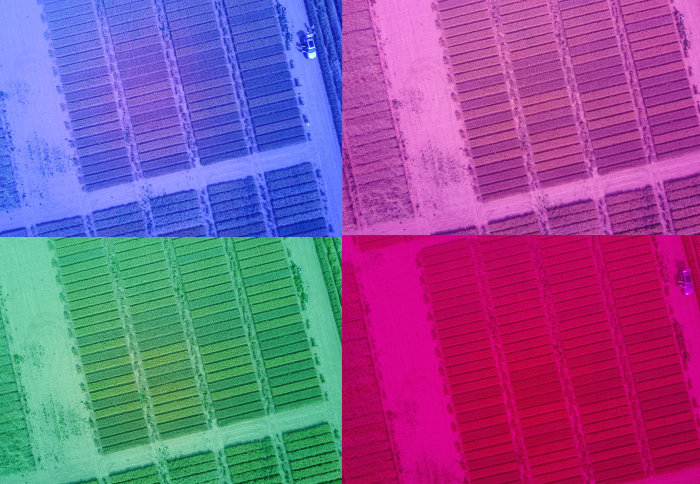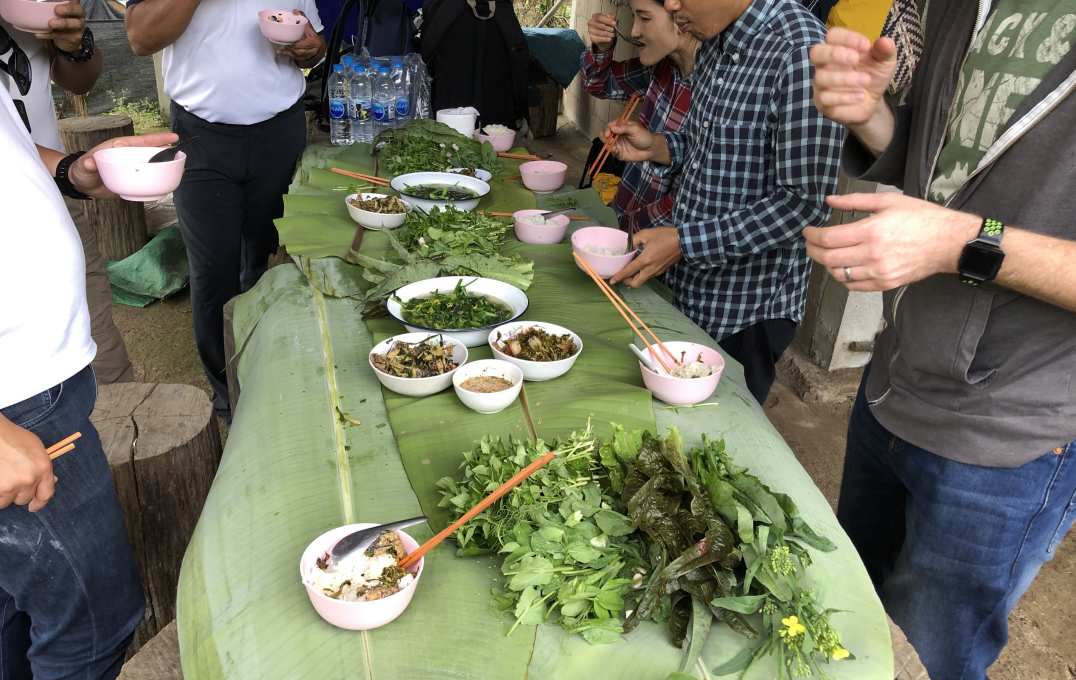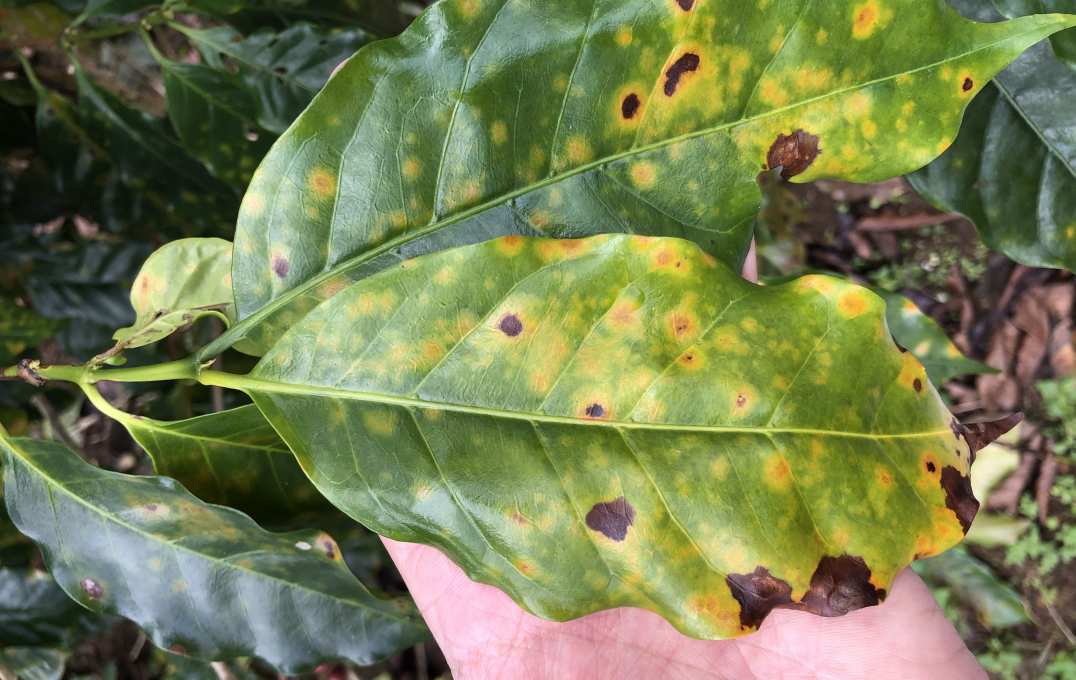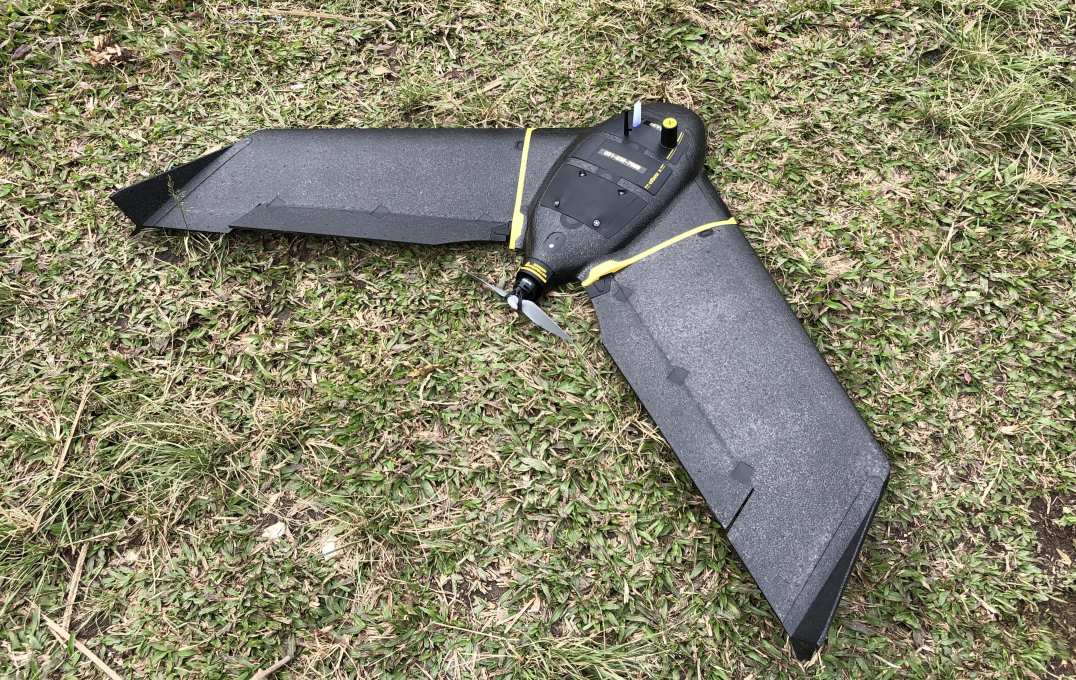Scientists trial drones to protect coffee plants from devastating fungal disease

A field imaged in different regions of the spectrum by drone
Researchers are trialling the use of drones to monitor coffee plant health in Thailand in a bid to prevent the spread of disease.
Around 95 million cups of coffee are drunk a day in the UK alone, but the coffee plant is susceptible to a fungal disease known as coffee rust. This disease is devastating to the plant and can wipe out vast swathes of crops or even entire plantations.
We hope the drones will be able to spot the disease early enough before it decimates the crop. Dr Oliver Windram
If a coffee plantation is hit by disease it can destroy an entire family’s livelihood. In the lower-income regions where coffee is grown, farmers also tend not to use expensive fungicides that could prevent the disease. This is also because they want to grow coffee without using chemicals to secure organic certification.
Now, a team led by Dr Oliver Windram from the Department of Life Sciences at Imperial are hoping to be able to prevent the spread of coffee rust using drones, and have been testing this out in the coffee growing areas of Thailand.
The idea is that if farmers can spot that disease has started to affect their crops, they can remove the affected plants to prevent it spreading further. This method would also allow them to control disease without chemical fungicides.
Dr Windram said: “Coffee rust can be utterly devastating to farmers who rely on the income for their livelihoods. The benefit of using drones is that they are non-invasive and do not damage the product, but also they are able to get a much more comprehensive view from the air than any farmer can from the ground. We hope the drones will be able to spot the disease early enough before it decimates the crop.”
From astronomy to agriculture
Dr Windram has been working with Professor Katherine Denby, a plant scientist from the University of York, and astrophysicist Dr Anthony Brown, of Durham University, to adapt a technique commonly used in astronomy called multispectral imaging to spot the coffee rust.
Multispectral imaging is a technique utilised in many scientific fields, from biology to astronomy, and is used to collect image data at different frequencies in the electromagnetic spectrum, including frequencies beyond visible light such as infrared.
Dr Brown said: “With hill farmers unable to afford fungicides, early detection of coffee leaf rust and removal of infected trees is critical. We will use drones to gather multispectral image data to identify coffee plants in hillside fields and identify initial signatures for detection of coffee leaf rust prior to visible symptoms.”
For the first phase of the project, the team has recently returned from a trip to the Chiang Rai province of Thailand, where they began surveying coffee fields and collecting image data of various crops. They partnered with a drone company in Thailand called Skyviv and the coffee growers Akha Ama and Abonzo coffee.
They will use this data to start to train machine learning algorithms, with the aim of having an instrument able to recognise and map coffee plants when they are mixed in with other crops, and to spot signs of disease in real-world settings. They also want to use this mapping to better understand how the disease spreads.
Identifying varieties
Dr Windram said: “Having located coffee in the field we would then like to track the spread of coffee leaf rust in coffee plants and as part of this investigate how different plant community structures influence the spread of this pathogen.
“We have shown that we can use multispectral sensing to differentiate between coffee plants infected with rust and those that are not. We can also distinguish between different types of coffee cultivars using this technology.”
Historically, growers have planted coffee plants without knowing which cultivars (varieties) they were using. Now, growers are more aware of which cultivars produce better yields and bean qualities, so helping them identify their crops will help them decide which to keep and which to replace.
Impact on the ground
The research project has been funded by the Science and Technology Facilities Council (STFC) Food Network+, which brings together researchers from STFC and different disciplines in the agri-food sector with the aim of solving some of the world’s greatest food sustainability challenges.
The project has now received additional funding from the STFC Food Network+ and will be looking to develop a custom built multispectrum camera that will be optimised for differentiating coffee cultivars and coffee leaf rust infections. This will allow Dr Windram’s team to gather more data and make the method more robust, before it can be deployed in other countries.
Dr Windram added: “If this all goes to plan I can see real impact being made on the ground on coffee farms within the next five years.
-
Based on a press release by the STFC.
Article supporters
Article text (excluding photos or graphics) © Imperial College London.
Photos and graphics subject to third party copyright used with permission or © Imperial College London.
Reporter
Hayley Dunning
Communications Division



